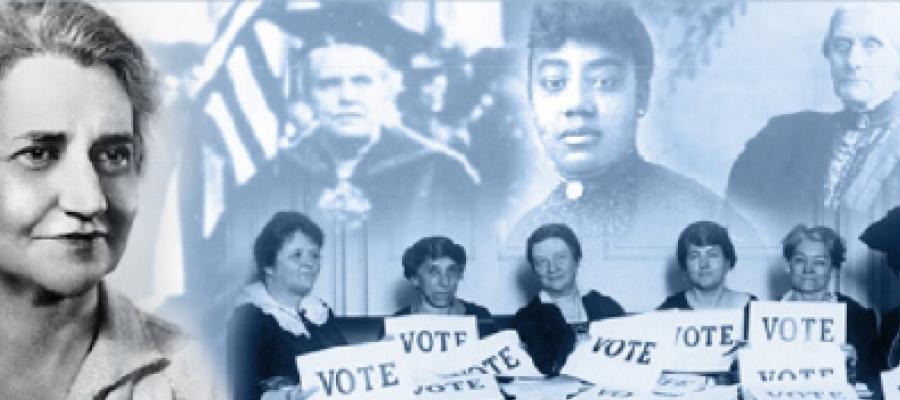February 11, 2011

Put yourself in Helen’s shoes. Have you faced election results that denied your basic rights?
Read an interview with Helen Valeska Bary (1888-1973) "The Suffrage Vote in California, 1911":
Bary
Finally, it came to the vote. On election night, the earliest returns we got were from San Francisco. And Orange County came in very early. Those were very much against us.
Parker
Against suffrage?
Bary
Against suffrage. By 11 p.m. not enough had come in to counteract it. We thought that not enough would come in so we conceded.Then everybody went home.
The next morning I went down to open up the headquarters. That was one of the most interesting days of my life. Nobody else from the league appeared; they were all flat. People streamed into the office. They were people I had never seen before. They were not our regulars. Many of them said they had never heard of the suffrage campaign; they did not know about it until they saw in the paper that it had lost.
They began to hand me money. I began to recruit people to help me. I had a couple of telephones and these people milling around and giving me money. I took in more money that day than we ever took in before, and I got all these pledges—hundreds of people came in and signed up for the next campaign. We all thought we had lost, you see.
Then on Thursday morning early, around four or five o'clock, one of the newspaperwomen, who was an ardent suffragist, called me and woke me up and said that we had won. The last of the cow counties had come in, and we had won by a margin of, I think it was 240 votes out of a couple of million.
Parker
So the cow counties pulled you through on the suffrage vote?
Bary
Every other county voted for suffrage excepting San Francisco and Orange. You see, in San Francisco labor was not socialist. There were some socialists but San Francisco had had union labor for many years. The leaders were P. H. McCarthy and Eugene Schmits. They were labor men but they were not socialists.
They took the general viewpoint that labor was run by men, it was a man's world, and that women should be protected and rather put behind them while they carried on the fight. Also, there was a strong feeling among a great many of them that if women had the vote, they would vote for prohibition. That was not what San Francisco wanted.
Parker
There was a strong Catholic element also in San Francisco's population?
Bary
Yes, and the Catholic element was not for suffrage. A women's place was in the home.
Parker
So you found yourself with a victory. You were victorious.
Bary
Yes, we were. Well, then the women decided that we should go ahead. I stayed on. We had a huge map of California, showing every precinct, and I colored that to show where we had won and where we had lost. Where we had won outstandingly was real red; where we had won by a narrow margin got down to a pale pink; and where we had lost went the same way with blue.
Parker
What characterized the strong districts for suffrage?
Bary
The labor part. East of Main Street in Los Angeles voted heavily for suffrage. The respectable, stylish West Side voted against it; still the county came in for it. This huge map showed that every place where we had worked and sent literature and all that, we lost. We won in the places that we had neglected. It was quite wholesome and the ladies took it with interest. They did not blame me.
Read More of Helen's Story
We highly recommend you read Bary's full interview on the Suffragists Oral History Project Web site. Note: you must click a button to agree to respect their copyright before you are allowed to view their content.
Our sincere thanks for permission to quote the interview: BARY, Helen Valeska. Labor Administration and Social Security: A Woman’s Life. 1974 BANC MSS 74/200, The Bancroft Library, University of California, Berkeley.
Get Involved: You Can Celebrate, Too!
- Join our Facebook Group "California: Celebrating 100 Years of Women Voting".
- Read our blog about "California: 100 Years of Women Voting".
- Donate to the League of Women Voters of California Education Fund.

